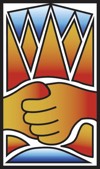Curriculum Information
Years 7-11 Curriculum - see also our Department Webpages from the home menu for what the curriculum means to each of our cohorts of pupil need
As a Special School for pupils working at below age-related expectations we adopt an approach to curriculum that mixes the four key elements that our pupils and students need. Our firm intent is that pupils will learn:
- as much about the world they live in as possible
- the key skills needed to be effective in optimising their life chances
- to grow to be confident, caring, safe citizens
We do this by structuring our curriculum in 4 key ways:
- teaching a formal curriculum sequenced in terms of knowledge and understanding by working out from, and building on, pupil experience and sequenced in terms of skills by working forwards by pupil mastery of skills
- teaching elements of Cultural Capital to promote inclusion in wider society as and when they are accessible from the formal curriculum sequenced by mastery or due to national or international news events
The formal Curriculum and Cultural Capital are organised as follows to optimise accessibility for our pupils:
- Communicaton; English including Phonics package Letters and Sounds and Colourful Semantics, Information Technology
- Cognition; Maths and Programming
- Physical World; Science, Design Technology and Physical Geography
- Social World; Social Education, Citizenship (Social Aspects), History, Geography, Religious Education (Religions), Spanish
- Arts and Spiritual; Art and Design, Music, Religious Education (spiritual)
- Personal Growth and Wellbeing; Personal Education, Health Education, Sex and Relationship Education, Citizenship (Personal Aspects), Mindfulness, Careers
- Physical Education; PE, Health Education (Exercise)
- directly addressing their Education, Health and Care Plan objectives through cross curricular Individual Education Plans
The key skills targeted through our IEPs are in the following areas:
- Communication
- Cognition ("Problem Solving", "Mental dexterity" or using "Thinking Tools")
- Working with others
- Improving own Learning
- Vocational, Mobility or Motor Skills
- preparing for the next stage of their education or life opportunities through all the above plus direct teaching of 'independence' skills; particularly as pupils move into Key Stage 4 in preparation for the Sixth Form
Please see our curriculum statement bleow for further details and our Learning cycle for what our pupils are learning about in the formal curriculum each term.
